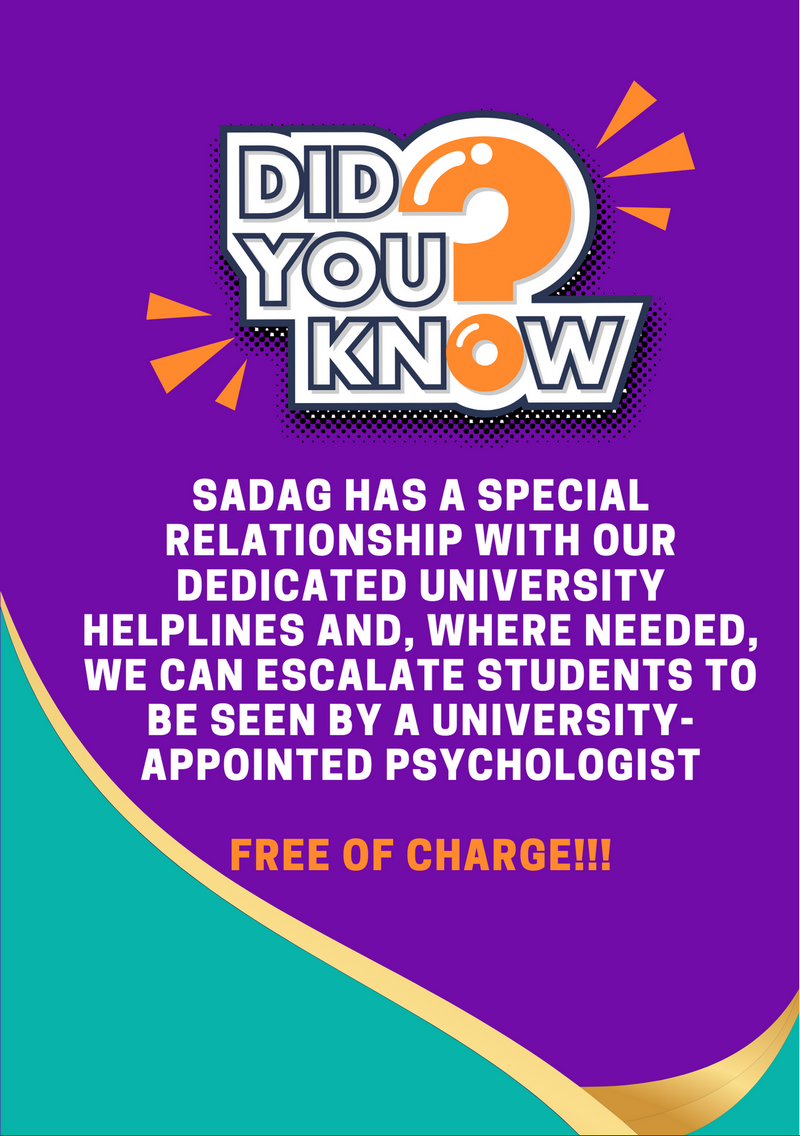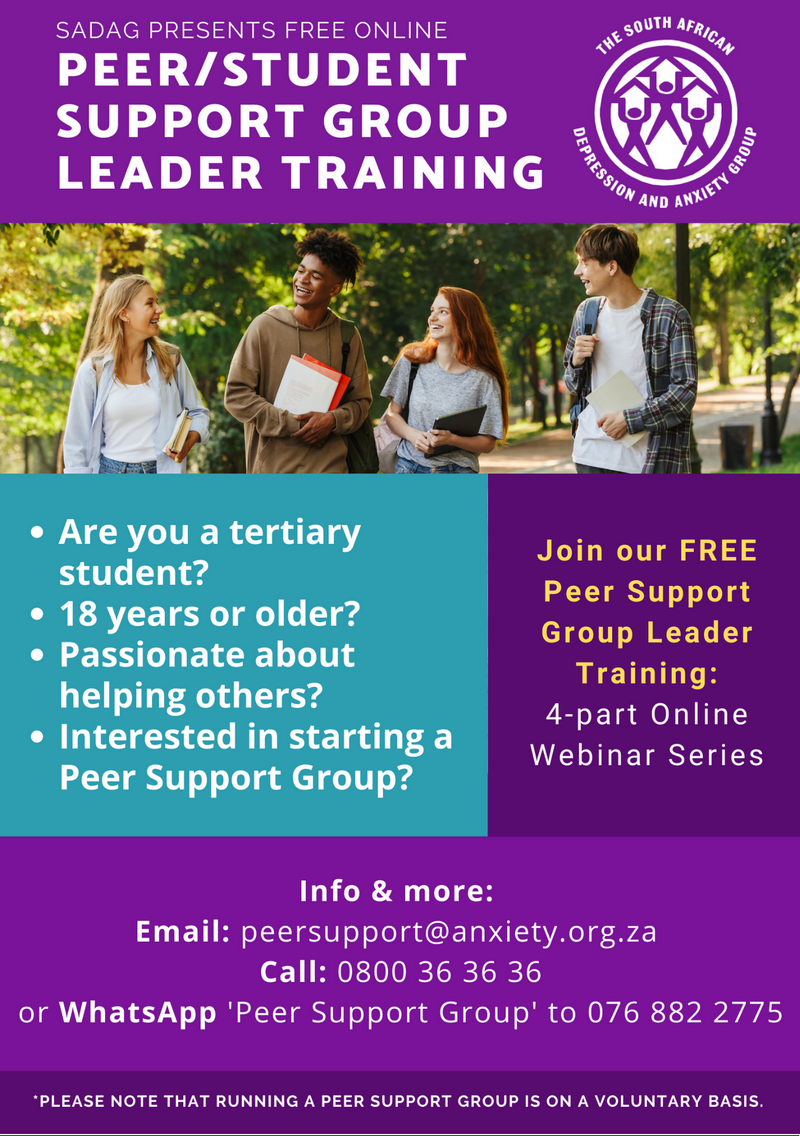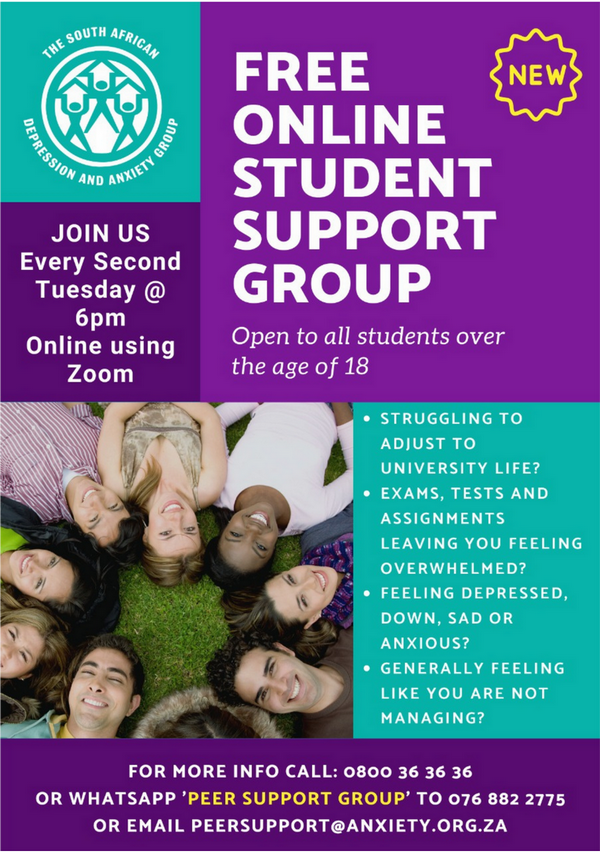
|
Peer Support Group Leader Training
|
|
|
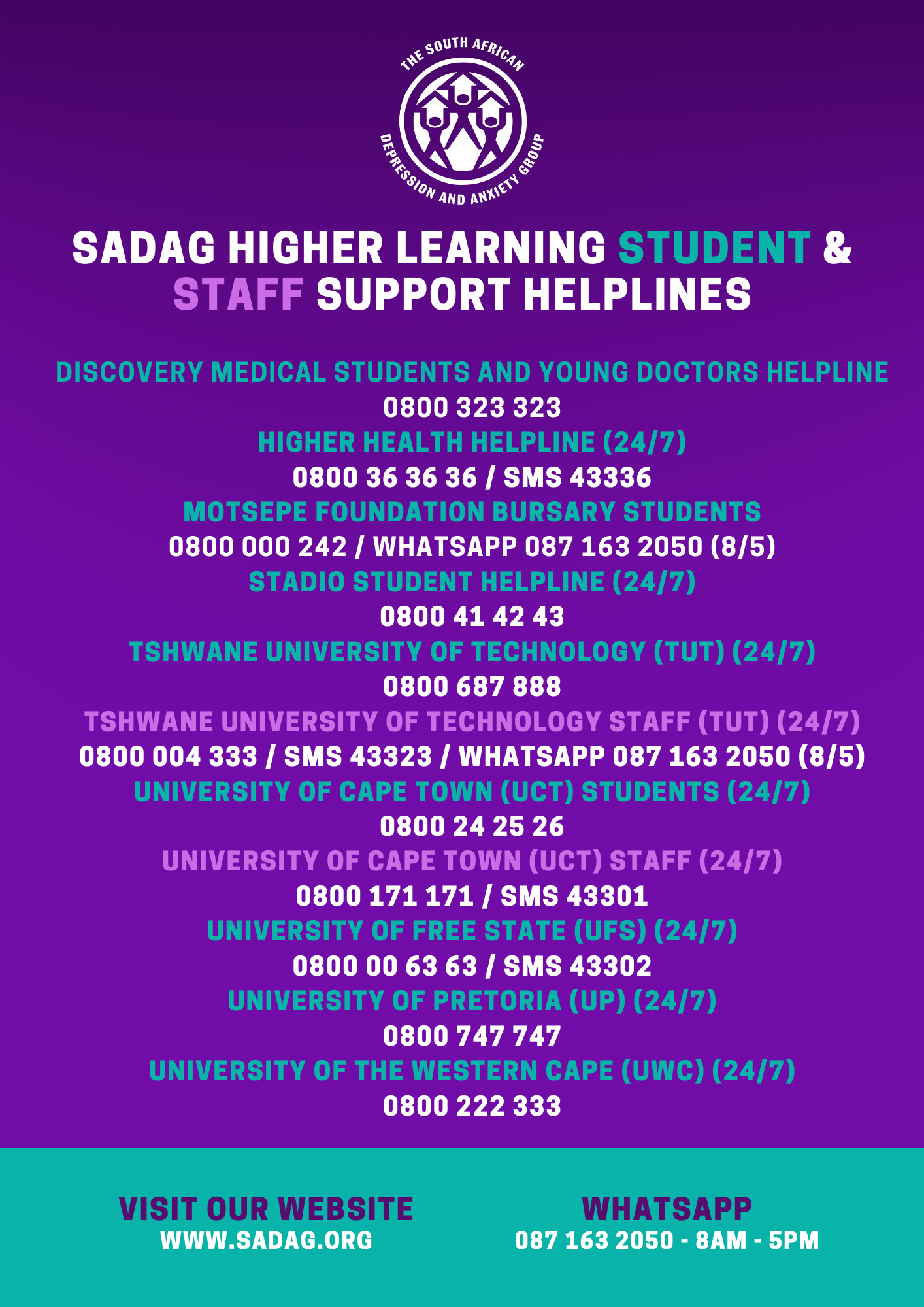 |
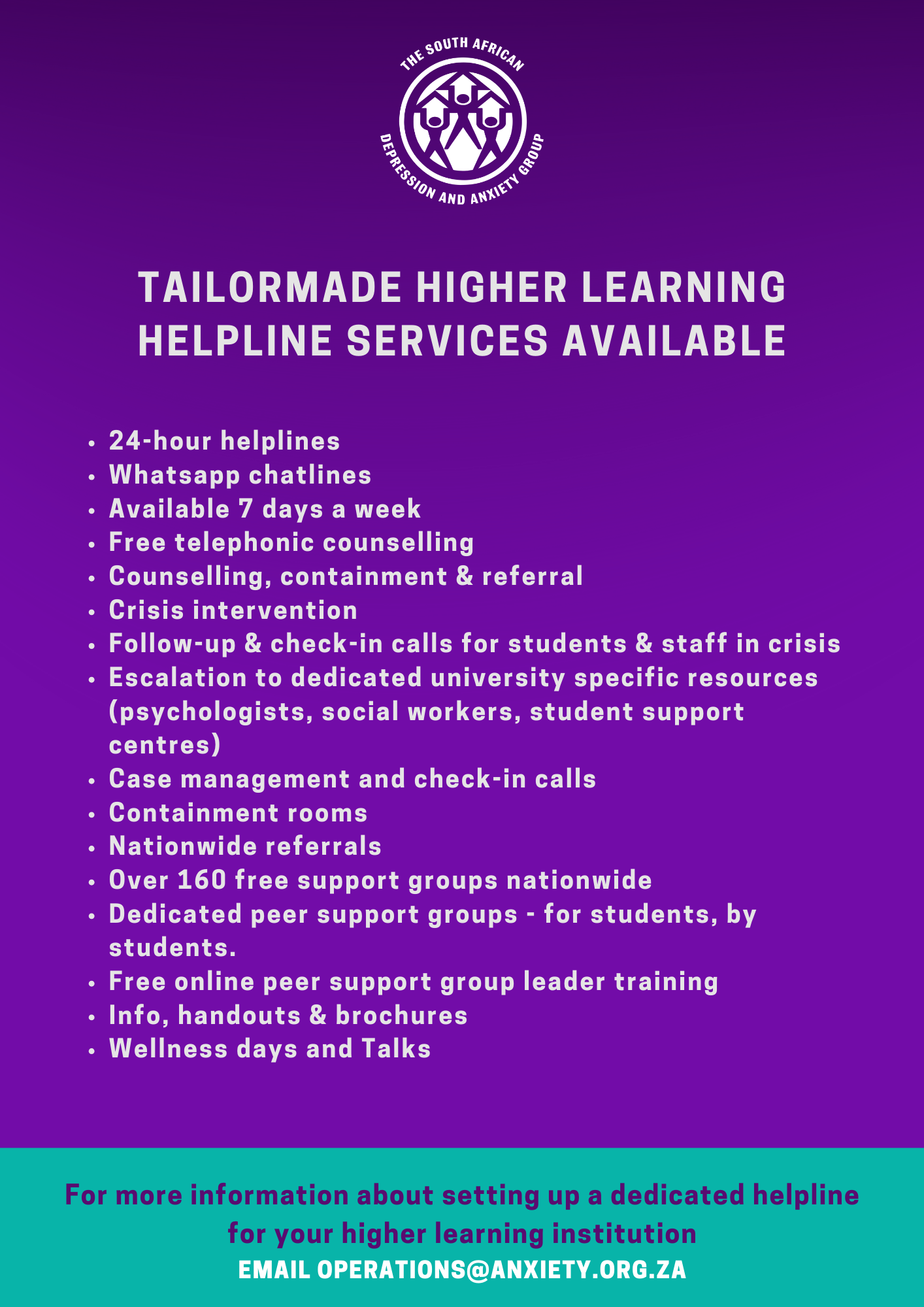 |
SADAG Dedicate Higher Learning Helplines
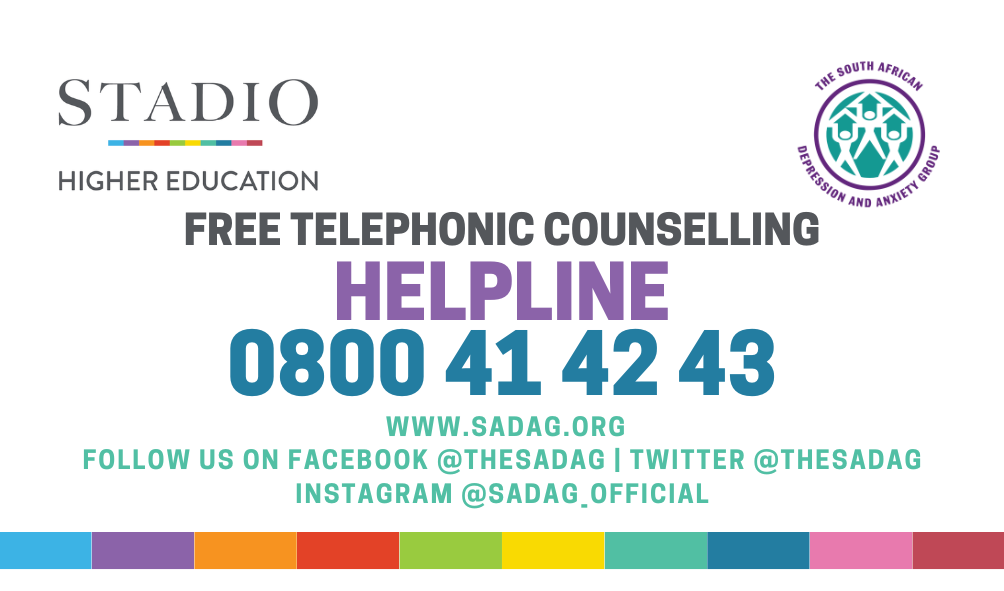 |
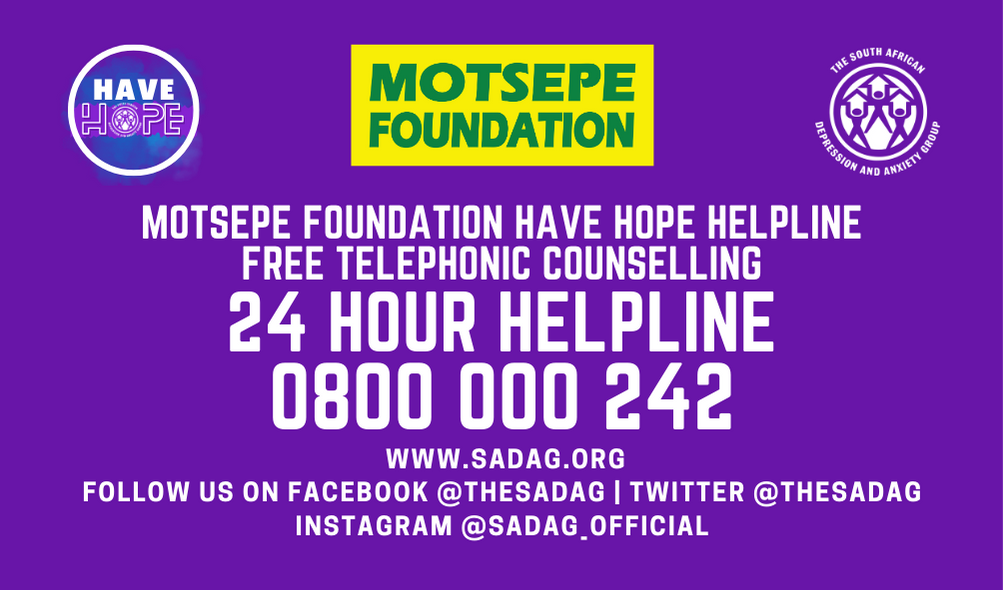 |
|
|
STADIO HELPLINE 0800 41 42 43 |
MOTSEPE HAVE HOPE HELPLINE 0800 000 242 |
|
|
|
||
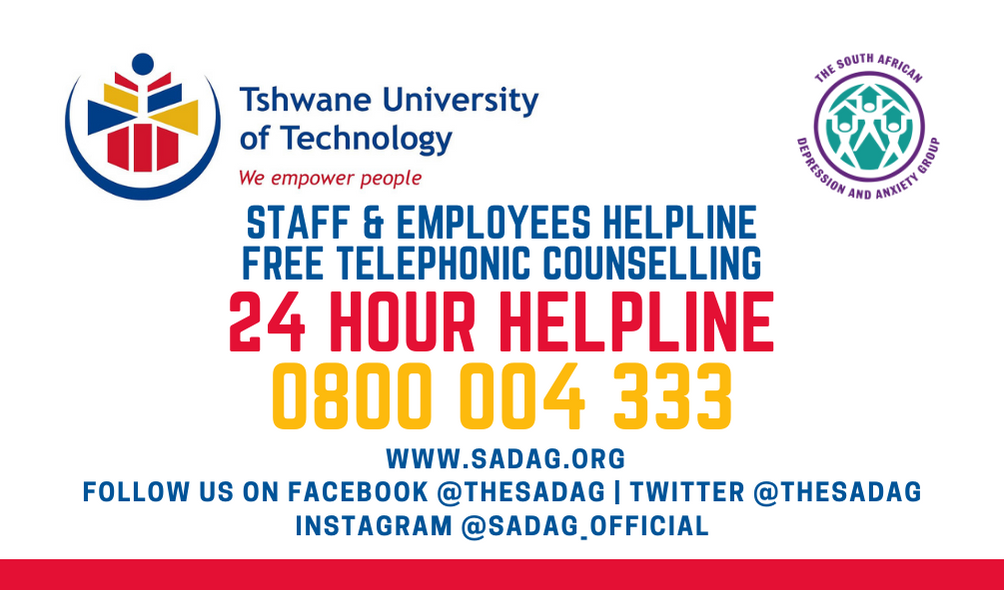 |
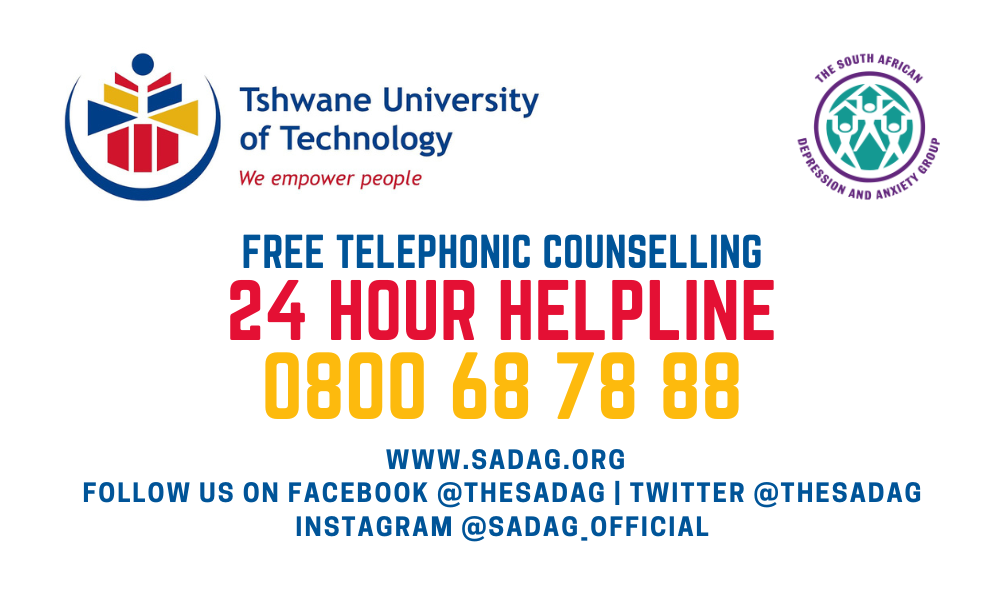 |
|
|
TUT STAFF HELPLINE 0800 004 333 |
TUT STUDENT HELPLINE 0800 68 78 88 |
|
|
|
||
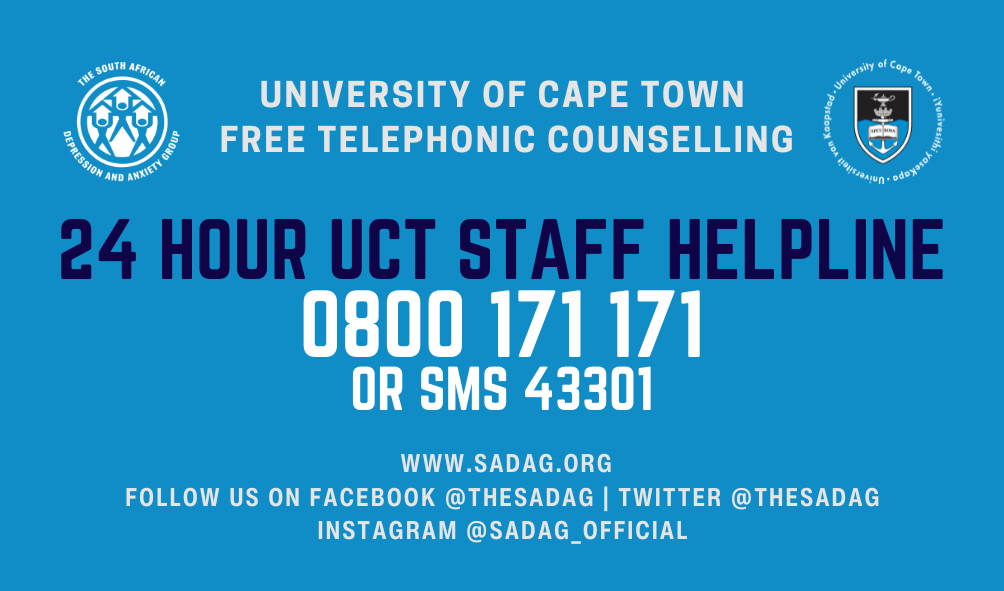 |
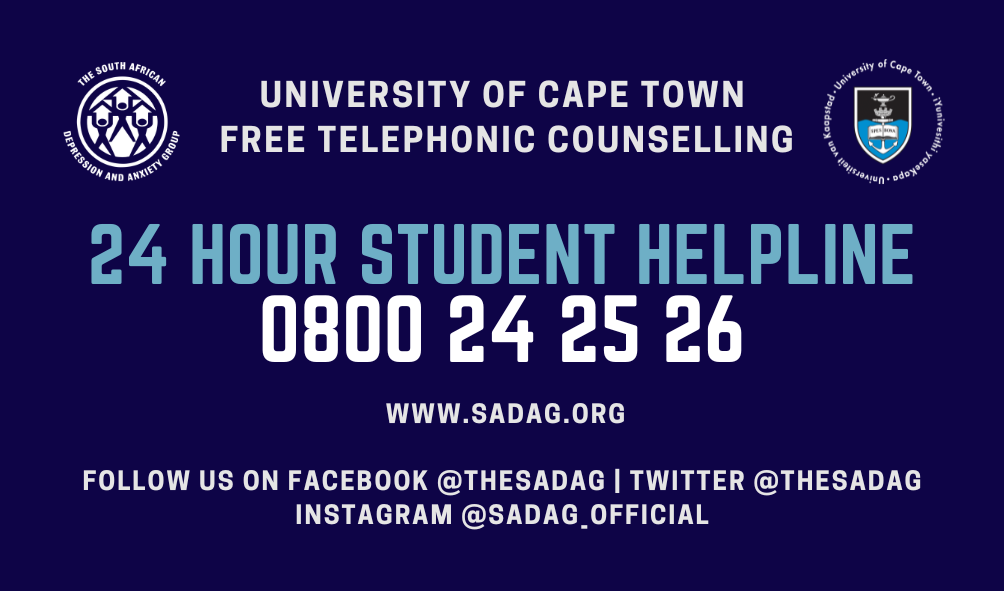 |
|
|
UCT STAFF HELPLINE 0800 171 171 |
UCT STUDENT HELPLINE 0800 24 25 26 |
|
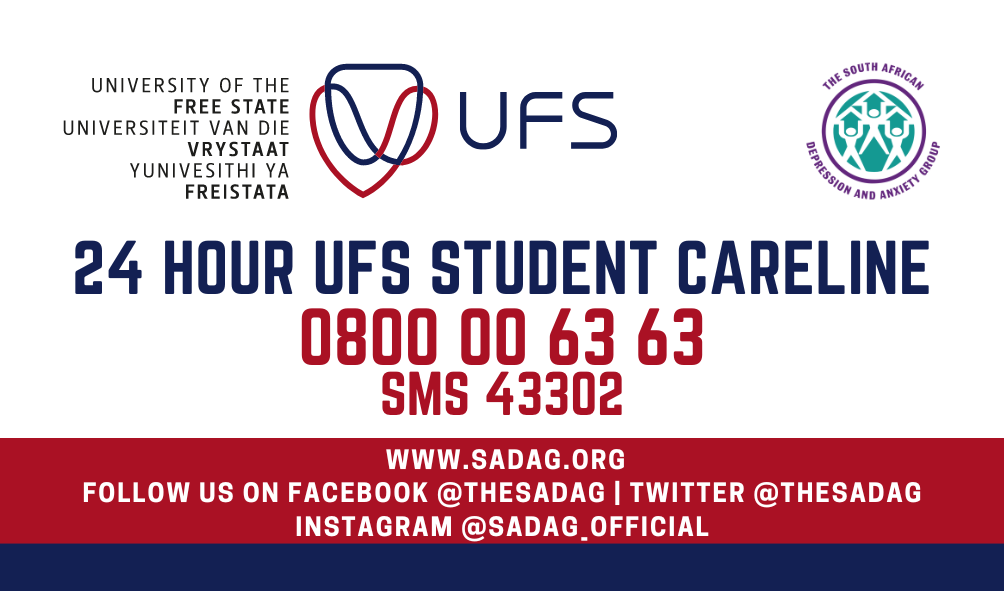 |
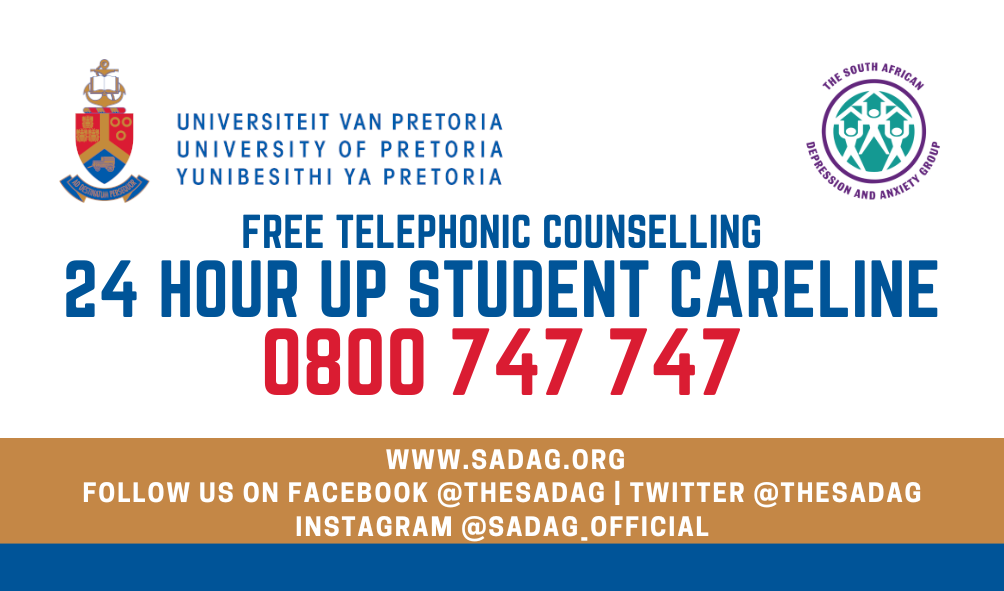 |
|
|
UFS STUDENT CARELINE 0800 00 63 63 |
UP STUDENT CARELINE 0800 747 747 |
|
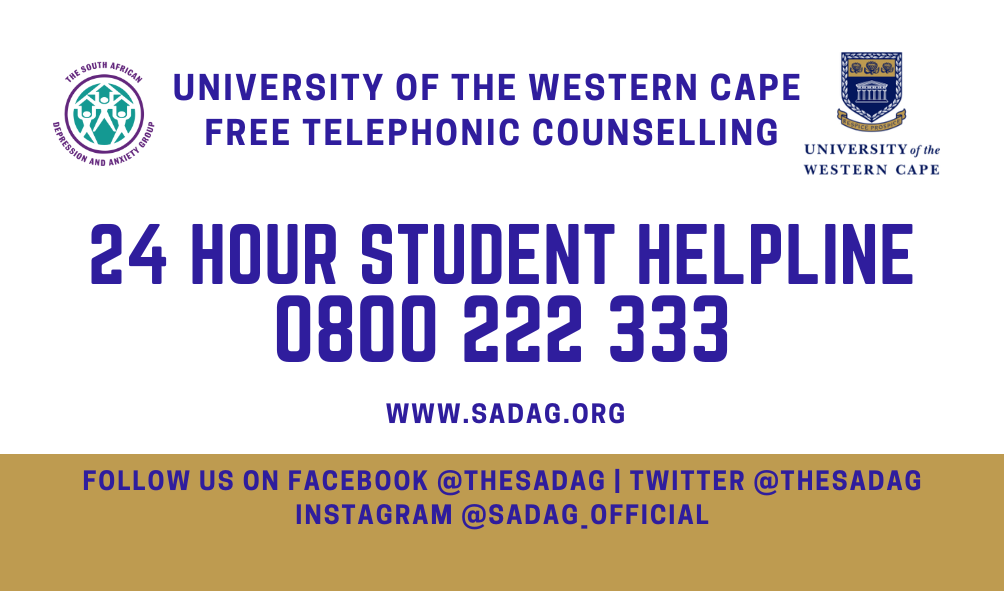 |
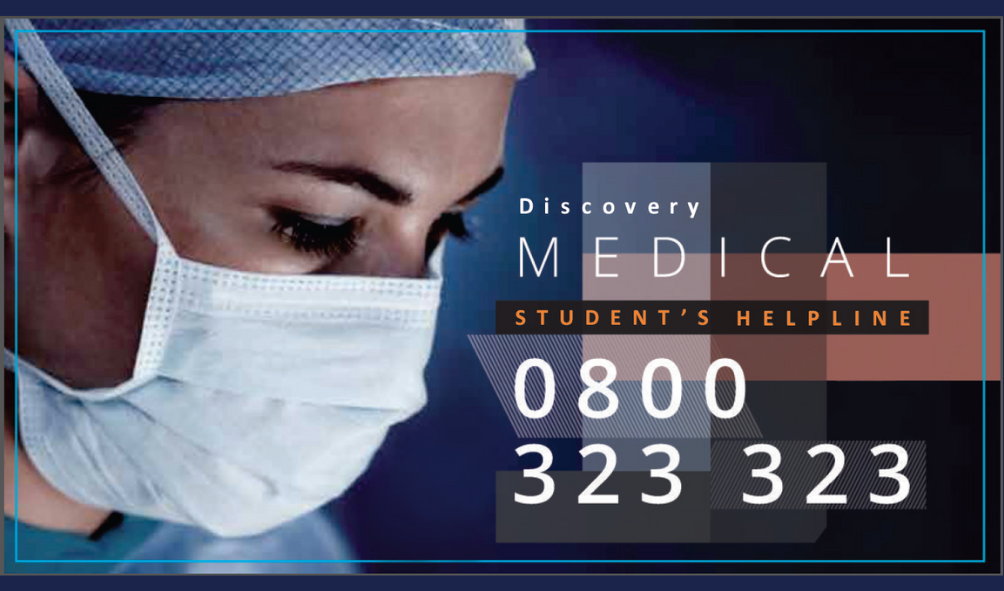 |
|
|
UWC STUDENT HELPLINE 0800 222 333 |
Discovery Medical Students Helpline 0800 323 323 |
|
SADAG Dedicated Student Helplines Aims and Objectives
- To provide psychoeducation on Mental Health issues to all students: SADAG provides relevant and useful information on various Mental Health topics via the distribution of brochures, the use of presentations and workshops, webinars, YouTube videos and website exposure.
- To promote a continuum-of-care framework for students living with a Mental Illness: Managing treatment can be a major challenge for students and learners resulting in decreased academic performance, increased absence and lack of motivation. SADAG uses a coordinated continuum of care approach to assist students holistically.
- To bridge the Mental Health gap: SADAG wants to ensure that students receive a network of resources and support services providing a holistic approach and a solutions-focused treatment plan.
- To encourage more people to screen for Mental Health issues: We want to ensure prevention and/or early identification of Mental Illness. These early interventions will facilitate the de-stigmatization of Mental Illnesses.
- Offer a range of support services: Increased support helps students to cope better with their Mental Health.
SADAG Dedicated Student Helplines Offerings
Each SADAG dedicated Helpline can be custom tailored to meet your organisations needs
- SADAG offers telephonic support via dedicated toll-free helplines, available 24 hours, 7 days a week, 365 days a year. This allows students and staff access to ‘Just-In-Time’ services as and when they need them. The telephonic counselling is conducted by trained dedicated SADAG counsellors and is available in eleven South African official languages.
- A dedicated email address can be provided to your students and learners or staff members to email their requests for help and support, which will also be monitored 24 hours a day.
- SADAG’s first line of intervention includes confidential telephonic assessments, screening and containment of Mental Health issues.
- SADAG can arrange for student/staff crisis interventions such as Trauma Debriefing, and Bereavement counselling for individuals and groups of people – and would be costed on an ad hoc basis.
- SADAG offers referral services with timeous track and follow-ups being conducted with acute cases.
- SADAG can facilitate Wellness Day talks which are focused on the promotion of Mental Health and emotional well-being.
- SADAG also offers training on Mental Health topics as well as psychological first aid for your staff and team. These are conducted online in webinar format. Our introductory presentation included an overview of Mental Health 101, Psychological First Aid, What to do in a Crisis as well as the SADAG Helpline available to students.
- WhatsApp Chatlines availibe between 8am – 5pm, 7 days a week
- Monthly check in calls with students
- Dedicated 24/7 SMS line
- Regular Monetoring and Evaluation reports
- Students will receive details of SADAG’s online platforms including our website (www.sadag.org), our Facebook page (The South African Depression and Anxiety Group) and our Twitter account (@The SADAG). The website and social media platforms are updated daily.
- Callers can log on to the free Facebook Friday ‘Ask The Expert’ which is open from 1pm-1:30pm every week, where an expert in the field of Mental Health answers questions on a variety of Mental Health issues.
Mental Health Study of University Students
South Africa National Student Mental Health Survey, conducted in 2020, collected data from undergraduate students at 17 institutions. More than 70 000 students responded to the survey, making it one of the biggest national student Mental Health surveys in the world and the first study of its kind in South Africa to collect data from many universities and assess a wide range of Mental Health problems. The study found that:
- 20 – 30% of Students are at risk of developing a Mental Illness
- 16.3% of students met the diagnostic criteria for a Mood Disorder (either Major Depressive Disorder or a Bipolar Mood Disorder)
- While 10.9% experienced a Generalised Anxiety Disorder.
- 21% of students reported clinically significant symptoms of Posttraumatic Stress Disorder, highlighting the high rates of trauma among the country’s young people.
- 6.6% of students are likely to meet the diagnostic criteria for a Substance use disorder
- 22.7% of students reported symptoms of an Eating Disorder and 24.5% reported symptoms of social anxiety
The initial results from the survey are an important step towards identifying where interventions are needed, what kinds of problems students are struggling with and the number of students who need help. The Mental Health of our country’s students is a key priority, not least of all because Mental Disorders may lead to lower academic attainment given that higher education is integral to economic growth and human development. Reliable epidemiological data about Mental Disorders is required to help plan effective campus-based interventions, formulate context-sensitive policies, establish priorities, especially in resource-constrained environments, and ensure that limited resources can be allocated to where they are most needed.
https://mg.co.za/thoughtleader/opinion/2022-11-09-large-mental-health-study-finds-20-30-of-students-at-risk/
| Newsflash |






